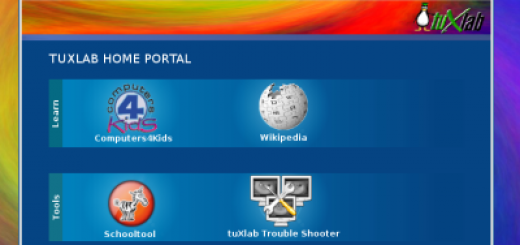CentOS Stream, or Debian?
It’s the end of CentOS as we know it
Earlier this week, the CentOS project announced the shift to CentOS stream. In a nutshell, this means that they will discontinue being a close clone of RHEL along with security updates, and instead it will serve as a development branch of RHEL.
As you can probably imagine (or gleam from the comments in that post I referenced), a lot of people are unhappy about this.
One particular quote got my attention this morning while catching up on this week’s edition of Linux Weekly News, under the distributions quotes section:
I have been doing this for 17 years and CentOS is basically my life’s work. This was (for me personally) a heart wrenching decision. However, i see no other decision as a possibility. If there was, it would have been made.
Johnny Hughes
I feel really sorry for this person and can empathize, I’ve been in similar situations in my life before where I’ve poured all my love and energy into something and then due to some corporate or organisational decisions (and usually poor ones), the project got discontinued and all that work that went into it vanishes into the ether. Also, 17 years is really long to be contributing to any one project so I can imagine that this must have been especially gutting.
Throw me a freakin’ bone here
I’m also somewhat skeptical of how successful CentOS Stream will really be in any form of a community project. It seems that Red Hat is expecting that volunteers should contribute to their product development for free, and then when these contributors actually want to use that resulting product, they’re expected to pay a corporate subscription fee to do so. This seems like a very lop-sided relationship to me, and I’m not sure it will be sustainable in the long term. In Red Hat’s announcement of CentOS Stream, they kind of throw the community a bone by saying “In the first half of 2021, we plan to introduce low- or no-cost programs for a variety of use cases”- it seems likely that this will just be for experimental purposes similar to the Windows Insider program and won’t be of much use for production users at all.
Red Hat does point out that their Universal Base Image (UBI) is free to use and that users could just use that on any system in a container, but this doesn’t add much comfort to the individuals and organisations who have contributed huge amounts of time and effort to CentOS over the years who rely on a stable, general-purpose Linux system that can be installed on bare metal.
Way forward for CentOS users
Where to from here? I suppose CentOS users could start coughing up for RHEL subscriptions. For many CentOS use cases that won’t make much sense. They could move to another distribution, or fork/restart CentOS. The latter is already happening. One of the original founders of the CentOS project, Gregory Kurtzer, is now working on Rocky Linux, which aims to be a new free system built from the RHEL sources.
Some people from Red Hat and Canonical are often a bit surprised or skeptical when I point out to them that binary licenses are also important. This whole saga is yet another data point, but it proves that yet again. If Red Hat had from the beginning released RHEL with free sources and unobfuscated patches, then none of this would’ve been necessary in the first place. And while I wish Rocky Linux all the success it aims to achieve, I do not think that working for free on a system that ultimately supports Red Hat’s selfish eco-system is really productive or helpful.
The fact is, Debian is already a free enterprise-scale system already used by huge organisations like Google and many others, which has stable releases, LTS support and ELTS offerings from external organisations if someone really needs it. And while RHEL clones have come and gone through the years, Debian’s mission and contract to its users is something that stays consistent and I believe Debian and its ideals will be around for as long as people need Unixy operating systems to run anywhere (i.e. a very long time).
While we sometimes fall short of some of our technical goals in Debian, and while we don’t always agree on everything, we do tend to make great long-term progress, and usually in the right direction. We’ve proved that our method of building a system together is sustainable, that we can do so reliably and timely and that we can collectively support it. From there on it can only get even better when we join forces and work together, because when either individuals or organisations contribute to Debian, they can use the end result for both private or commercial purposes without having to pay any fee or be encumbered by legal gotchas.
Don’t get caught by greedy corporate motivations that will result in you losing years of your life’s work for absolutely no good reason. Make your time and effort count and either contribute to Debian or give your employees time to do so on company time. Many already do and reap the rewards of this, and don’t look back.
While Debian is a very container and virtualization friendly system, we’ve managed to remain a good general-purpose operating system that manages to span use cases so vast that I’d have to use a blog post longer than this one just to cover them.
And while learning a whole new set of package build chain, package manager and new organisational culture and so on can be uhm, really rocky at the start, I’d say that it’s a good investment with Debian and unlikely to be time that you’ll ever felt was wasted. As Debian project leader, I’m personally available to help answer any questions that someone might have if they are interested in coming over to Debian. Feel free to mail leader_AT_debian.org (replace _AT_ with @) or find me on the oftc IRC network with the nick highvoltage. I believe that together, we can make Debian the de facto free enterprise system, and that it would be to the benefit of all its corporate users, instead of tilting all the benefit to just one or two corporations who certainly don’t have your best interests in mind.








I will spend my days making sure the world knows that REDHAT is a bunch of greedy wankers. I will also completely move away from Centos. And instead, go with a whole new OS. Probably Debian. P.s Screw you RedHat.
Debian Stable for servers (backports when you need them), Testing and Sid for desktops (rolling), Debian on my Raspberry Pis, Debian (Crouton) on my Chromebook as well. All file systems (including btrfs), all DEs, not just Gnome. Full install, Live install, CLI install, GUI install, minimal Network install, Jigdo, etc. Biggest package repositories. Which distro can provide all that.
Thank you Debian
This was spot on. I appreciated the recognition that Rocky Linux, Oracle, or CloudLinux are, at best, masking the underlying problem (if not actively contributing). One thing to mention: some of us get paid to do Linux and have to be conversant in SELinux, either due to company policy or regulatory compliance. There’s NO question AppArmor is 90% as effective at 10% the headache. But if it doesn’t do SELinux, it won’t run in my data center. :/
Hi Jonathan. Thanks for the article, I have some questions.
Let’s start by saying I totally agree with the idea of deciding what to learn, when there’s too much to learn.
I believe Debian is truly the universal operating system you guys state to be.
Basically, my distro hop tendency stopped when i got to Debian. My readings and understanding of Debian as a whole got me to the conclusion that Debian is what I had to use and learn.
I’ve been using it for many years already in production servers as well as desktops, laptops, SBCs, etc. Great Great experience so far. I have nothing but praise for Debian.
However, I have friends with lots of experience and serious jobs as sysadmins that say the biggest reason why Corporations use Red Hat or Centos for mission critical stuff is because APT is not as reliable as YUM for massively scripted deployments.
In fact, I remember using APT in some scripts myself and getting a little warning message from APT saying something along the lines of “careful when using APT in scripts”.
What’s your take on this, and what would be your recommendations?
Debian for stability, arch for experimental.
I think the last red hat I installed was 6.5. Tried fedora and didn’t like it
Apt should be at least as reliable as yum – FAI and other solutions are often used for massive deployments. Likewise, the Debian installer can be as readily scripted as Red Hat / CentOS Kickstart. There’s no need for third party repositories with Debian: with RH/CentOS you rely on EPEL and similar. Both distributions have their place.
I think one of the biggest hurdles is no concrete life-cycle to plan against, plus there is no committed updates for 10 years.
Choose any of the 3 main distros out there:
Debian stable, Debian testing or Debian experimental